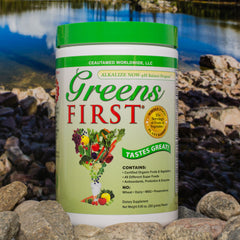Your Cart is Empty
FREE SHIPPING ON ORDERS OVER $20 - FREE HEALTHY SNACK WITH EVERY PURCHASE
Our site uses cookies. By using our site, you agree to our use of cookies. Privacy Policy
Menu
-
- Health Conditions
- Maximum Performance
- Accessories & Gear
- Altitude Training
- Athlete Overtraining Syndrome
- Core Strength
- Dangers of NSAIDS
- Detox / Cleanse
- Endurance Nutrition & Supplementation
- Energy Boosting
- Exercise & Immunity
- Flexibility
- Hydration
- Hypoglycemia / Bonking
- Hyponatremia
- Immunity Support
- Lab Testing
- Muscle Building
- Recovery
- Sports Drinks
- Package Bundles
- Adrenal Support
- Healthy Aging
- Athletic Performance
- Blood Sugar Balance
- Bone Support
- Daily Nutrition Essentials
- Daily Wellness
- Energy Support
- Fat Loss Support Bundle
- Female Fertility Bundle
- Female Hormone Balance
- Gut Health
- Heart Health
- Immunity Boosters
- Inflammation Control
- Injury Repair
- Joint Support
- Liver Support
- Menopause Support
- Men's Wellness
- Mood Lift
- Muscle Cramp Relief
- Muscle Builder
- Recovery
- Safe Travels
- Sleep Enhancers
- Stress Relief
- Thyroid Support
- Brands
- Blog
-
- Login

FREE SHIPPING ON ORDERS OVER $20 - FREE HEALTHY SNACK WITH EVERY PURCHASE
Our site uses cookies. By using our site, you agree to our use of cookies. Privacy Policy
Fueling for Performance vs Health
March 29, 2024 3 min read

Fueling for Performance vs Health
That old adage from Hippocrates “Let food be thy medicine and medicine be thy food” is something I say to a lot of patients to remind them of the power of good nutrition.
Next to dedicated training, food is the most important influencer of performance energy, and recovery. Food is fuel. Food repairs your body. There just isn’t any other way to get energy into your body. (Caffeine doesn’t even give you energy - it just increases the rate of metabolism, giving you the effect of more energy).
In regard to fitness, food gives you energy to perform and provides the building blocks for recovery. Food also opens the door to health and disease, depending on what you eat. The healthiest foods available (veggies, fruits, nuts, seeds, legumes, lean meats and whole grains) can be used to boost both health and performance.
Prioritizing the intake of nutrient-dense foods around workouts is what I’d describe as eating for performance. Choosing to eat healthy, nutrient dense foods is how we eat for health, and disease prevention.
Yet, you probably know an athlete that does neither.
While they may operate under the guise of eating for performance, they’re the ones who live off gels, bars and the almighty neon sports drink, without ever seeming to eat anything ‘real’.
Or maybe they cram their faces with whatever greasy, processed pub food that’s available on the way home from their run or ride. A couple beers after a tough workout is part of their carb replacement (and loading!) strategy.
Yep, it’s impressive they can eat all that crap and still show up, but this is a person who isn’t eating for health.
But what would happen if they actually ate some real, nutrient dense foods? Would they have better energy? Would they experience better recovery? Would they be less sore, less worked over, less inflamed? You bet. “Let food be thy medicine and medicine be thy food”
It’s safe to say that by decreasing their intake of sugars and processed foods, high calorie/low nutrient foods and excess alcohol, they’ll greatly decrease their risk of short term problems like these, and also decrease their risk of lifestyle diseases. Diseases like heart disease, insulin resistance, cancers, liver disease, hypertension and stroke, to name a few. As the saying goes though, ‘you can’t out exercise a bad diet’.
Exercise certainly cuts this risk, but in the face of a poor diet it’s no panacea. Sure it’ll allow one to ‘get a pass’ for a bit, but it’s likely those poor dietary habits will stick around a lot longer than one’s competitive drive to train and race.
When “life” happens, the training will take a backseat and those poor dietary habits will not only take the front seat, but also they’ll start driving you as well.
I like to use one of the Greens First powders when my diet falls off. That way, I'm at least getting plenty of antioxidants and important phytonutrients (the good stuff in fruits and veggies) in.
Then, once things have calmed a bit, and I can get back to planning and prepping healthy meals, I don't have that hung over feeling you get from being off a healthy diet for a couple of weeks!
Now’s the time to start eating for health, and let it also be your performance fuel!
Leave a comment
Comments will be approved before showing up.
Free Athletic Stuff
-
Free Water Bottle With Purchase Of $100

Simply Add To Cart & Use Coupon Code: FREEBOTTLE
Free Visor With Purchase Of $150

Simply Add To Cart & Use Coupon Code: FREEVISOR
{"statementLink":"","footerHtml":"","hideMobile":false,"hideTrigger":false,"disableBgProcess":false,"language":"en","position":"left","leadColor":"#146ff8","triggerColor":"#146ff8","triggerRadius":"50%","triggerPositionX":"right","triggerPositionY":"bottom","triggerIcon":"wheels","triggerSize":"medium","triggerOffsetX":20,"triggerOffsetY":20,"mobile":{"triggerSize":"small","triggerPositionX":"right","triggerPositionY":"bottom","triggerOffsetX":10,"triggerOffsetY":10,"triggerRadius":"50%"}}

